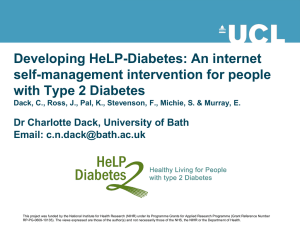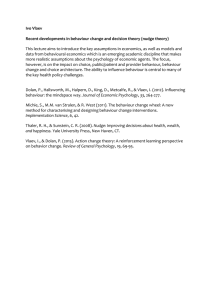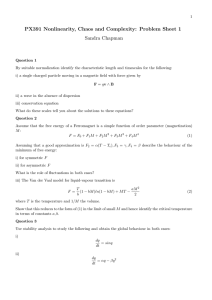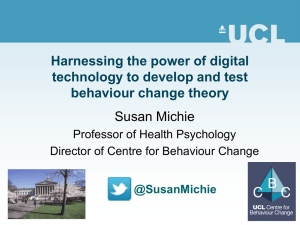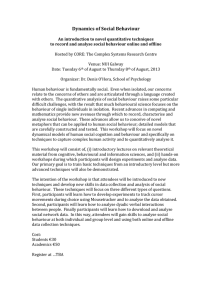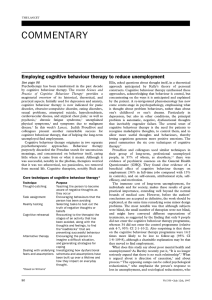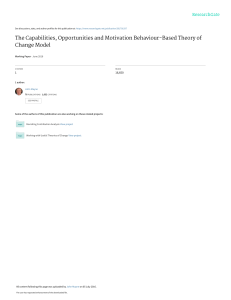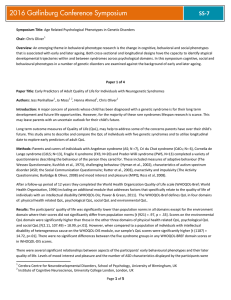Integrating data and theory to create an online self-management programme for
advertisement
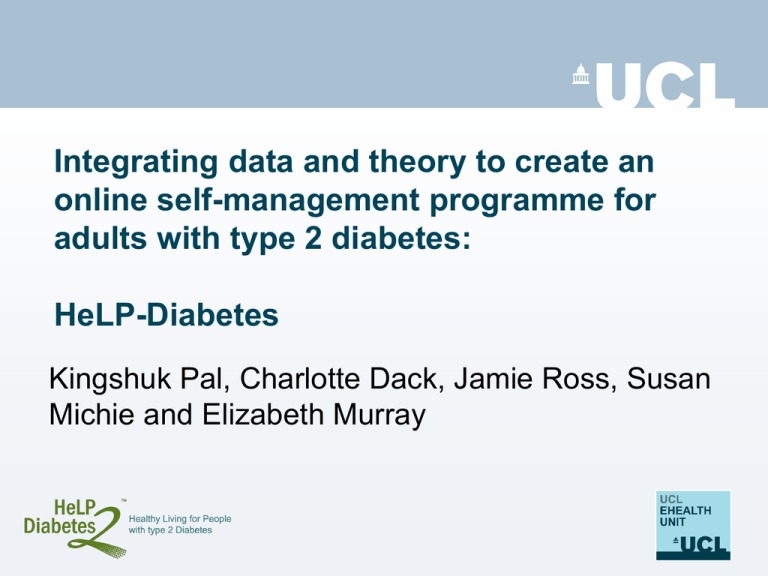
Integrating data and theory to create an online self-management programme for adults with type 2 diabetes: HeLP-Diabetes Kingshuk Pal, Charlotte Dack, Jamie Ross, Susan Michie and Elizabeth Murray Transtheoretical model Theory of Planned Behaviour Social Cognitive Theory Information-Motivation-Behavioural-Skills Davis et al 2015. Theories of behaviour and behaviour change across the social and behavioural sciences: a scoping review Health Psychol Rev 9(3):323-344 Data: • Cochrane systematic review of computer-based diabetes self-management interventions • Qualitative work with people with type 2 diabetes • Qualitative work with health professionals – GPs, Nurses, dieticians • Professional guidance e.g. National Institute for Health and Care Excellence (NICE) NG28 COM-B system Michie S, van Stralen MM, West R. 2011. The behaviour change wheel: A new method for characterising and designing behaviour change interventions. Implementation Science 6. Theoretical domains Knowledge Psychological capability Capability Skills (cognitive and interpersonal) Memory, attention and decision process Behavioural regulation Physical capability Skills (physical) Theory Adult learning theories Theoretical domains Reflective motivation Motivation Automatic motivation Physical environment Opportunity Social environment Theory Social/professional role Corbin and Strauss and identity Beliefs about capabilities Social Cognitive Theory Beliefs about consequences Optimism Goals Intentions Reinforcement Emotion Environmental context and resources Social influences Control Theory Operant Learning Theory Thank you! https://www.help-diabetes.org.uk/ Email me: k.pal@ucl.ac.uk This presentation presents independent research funded by the National Institute for Health Research (NIHR) under its Programme Grants for Applied Research Programme (Grant Reference Number RP-PG-060910135). The views expressed are those of the author(s) and not necessarily those of the NHS, the NIHR or the Department of Health.
